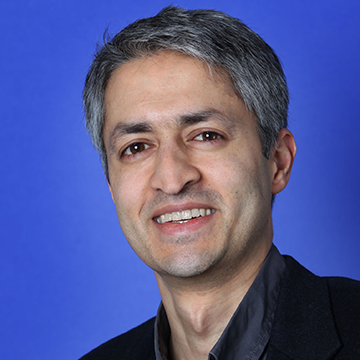Brussels was the location of our third Thomson Talks with Madhav Chinnappa held on 25 June 2024, focused on the specific subject of AI/News & Regulation. Four kick-off speakers framed the topic from their respective perspectives before the open-ended discussion took place.
The event was held under the Chatham House Rule so where someone is named, it is with their explicit permission.
- Claus Grewenig, Chief Corporate Affairs Officer at RTL Deutschland co-hosted and shared the perspective of a large broadcasting and streaming company’s as well as a news organisation’s perspective around:
- despite the pros of AI, the need for a robust (copyright) framework to protect and negotiate when content is used
- the need for improvements in levelling the playing field and findability for value media
- a focus on financial sustainability of the media sector (e.g. no ad restrictions)
- Dan Nechita, Head of Cabinet for Dragos Tudorache, MEP with Renew Europe, spoke about how the European Parliament (EP) insisted on provisions for transparency regarding input data to increase our knowledge of how models are trained, about how AI labelling helps combat disinformation and electoral interference, and about the next steps in the AI Act implementation, for which the European Commission (EC), and in particular the AI Office, is in charge.
- Kilian Gross, Head of Unit in the AI Office at the EC followed with outlining how the AI Office is a transversal organisation, not just a regulator and is trying to balance innovation and regulation while being inclusive, fast and conscious that actions need to be done with the global context in mind.
- Ariane Bernard, a news industry and digital innovation leader who currently advises many News CEOs, spoke about the reality from “the trenches” where her current clients often express anxiety about the lack of clarity about where things are going which has led many news organisations to be slow or to fall back on a dependency on Big Tech so as not to fall foul of any interpretation of regulation.


Postive role for AI?
Participants expressed a series of concerns about the AI world in terms of media sustainability, trust and disinformation as well as copyright concerns. There were many open questions about how regulation could or would play a positive force in the ecosystem overall.
It was acknowledged that AI tools could be positive and help freedom of expression and legitimate news organisations but this was tempered by concerns of how bad actors would use these tools and ignore any regulations. This led to a discussion about journalism's role in explaining AI to a wider audience, while things are moving so quickly - no easy task!
Sonja Schwetje of RTL Deutschland observed that while most media organisations have shown an immense effort catering to the preferences of younger audiences in terms of how and where to provide their content, there remains an ambiguity between balanced, impartial journalistic information and polarising, opinion-based content, with the latter being promoted much more via algorithms.
Dialogue between all parties
Some participants felt that the regulation system had failed news organisations by not protecting IP enough and worried that this would lead to a collapse of more news organisations which would then lead to undermining the AI models themselves. A point was made that much of news is based on so-called “derivative content” and thus based on the work of others, so news organisations have always done this and therefore need to acknowledge that first, before lecturing to tech companies.
The importance of dialogue between regulators, news organisations and tech companies was a recurring theme, especially as existing regulations may not be sufficient to address the challenges and speed of developments posed by AI. Is there a way to co-regulate holistically? Alexandru Giboi of The European Alliance of News Agencies made the point that more mutual understanding between tech & media companies could lead to better problem-solving in the future.
There was a sidebar on the value of news: to society and also to tech companies. An observation was made that tech companies value news using the metric of revenue to them (which is de minimis) while news organisations judge their value in terms of societal value and importance to democracy. Thus, if the two sides are using different measures, they will never agree.
If news organisations believed they were so important to democracy, then they were challenged to try to speak with one voice to regulators as otherwise, their perspectives would not be understood nor factored in well enough. The difficulty is that there are multiple views on the multiple issues, including from within a single news organisation so getting to a singular would be very, very hard. But perhaps the potential existential challenge faced by the news ecosystem would drive different, more collaborative behaviour than in the past. And news organisations were also advised not to be slow, as it had been in the past.
In terms of solutions, a few were discussed, including:
- Public education initiatives to raise awareness of AI and its potential pitfalls.
- Investment in media literacy programs to help people critically evaluate information online.
- Development of new economic models for the media industry that can thrive in the digital age.
Finding a balance between technological advancement, ethical considerations, and media viability will be crucial in the years to come in finding the right regulation to regulate AI and the news ecosystem.

Madhav Chinnappa
Thomson Talks
Madhav Chinnappa, the former Director of News Ecosystem Development at Google and veteran news executive, leads our Thought Leadership events Thomson Talks.
Madhav Chinnappa, the former Director of News Ecosystem Development at Google and veteran news executive, leads our Thought Leadership events Thomson Talks.